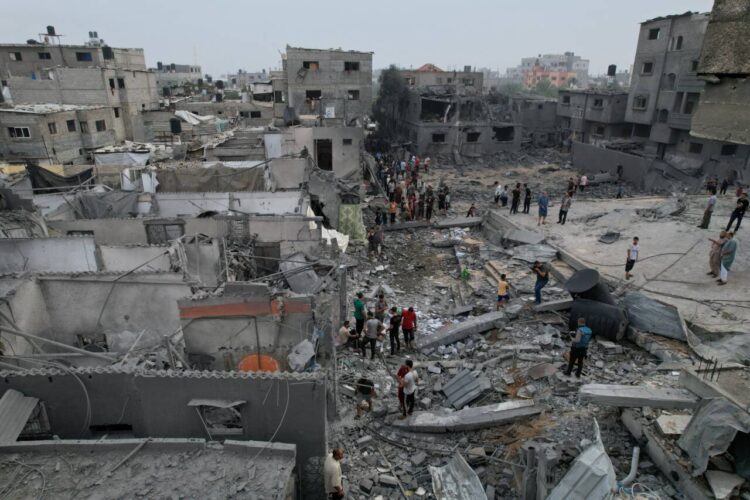Hamas disclosed on Saturday that it is currently assessing a new proposal from Israel for a cease-fire in Gaza, as Egypt ramps up mediation efforts aimed at halting the protracted conflict and averting an anticipated Israeli ground incursion into Rafah. Khalil al-Hayya, a senior Hamas official, refrained from divulging specifics of Israel’s offer but noted that it was a response to a Hamas proposal made two weeks ago. Negotiations earlier this month primarily revolved around a six-week cease-fire plan and the release of 40 civilian and infirm captives in exchange for the liberation of numerous Palestinian detainees from Israeli penitentiaries.
In a separate statement, Hamas addressed discussions among leaders from the three main militant factions operating in Gaza regarding efforts to terminate the hostilities, although it did not explicitly reference the Israeli proposal.
These developments unfolded shortly after an Egyptian delegation concluded talks in Israel, focusing on a “new vision” for a prolonged cease-fire in Gaza, according to an anonymous Egyptian official. However, it remains unclear whether Israel’s recent proposal is directly linked to this diplomatic visit.
Discussions between Egyptian and Israeli representatives primarily concentrated on the initial phase of a framework that would entail a limited exchange of captives held by Hamas for Palestinian prisoners and the facilitated return of a significant number of displaced Gazans to their residences in northern Gaza “with minimal restrictions,” the Egyptian official disclosed.
Mediators are striving to forge a compromise that addresses the principal demands of both parties, potentially paving the way for further negotiations aimed at reaching a comprehensive agreement to end the conflict.
Hamas has reiterated its steadfast stance, insisting on a permanent cease-fire and the complete withdrawal of Israeli forces, demands staunchly rebuffed by Israel, which vows to persist with military operations until Hamas is decisively defeated and maintains a security presence in Gaza. International pressure mounts for Hamas and Israel to secure a cease-fire and avert an Israeli assault on Rafah, where over half of Gaza’s 2.3 million inhabitants have sought refuge.
Amid escalating tensions, Israel has long signaled its intention to launch a ground offensive into Rafah, situated on the Egypt-Gaza border, purportedly to target remaining Hamas militants, despite calls for restraint, including from its key ally, the United States.
Egypt has cautioned that a Rafah offensive could precipitate “catastrophic consequences” for the humanitarian situation in Gaza, where famine looms, and jeopardize regional stability and security.
The Israeli military has amassed a considerable contingent of tanks and armored vehicles in southern Israel, adjacent to Rafah, while conducting near-daily airstrikes on locations within the city.
Tragically, the violence persists unabated, with airstrikes in Rafah claiming the lives of several civilians, including children, and additional casualties reported in other parts of Gaza. Meanwhile, clashes in the Israeli-occupied West Bank resulted in the deaths of two Palestinian men at a checkpoint near the city of Jenin.
As diplomatic efforts continue to grapple with the crisis, protests against the conflict and solidarity with Palestinians gain momentum worldwide, underscoring the urgency of finding a lasting resolution to the violence plaguing the region.

















Comments